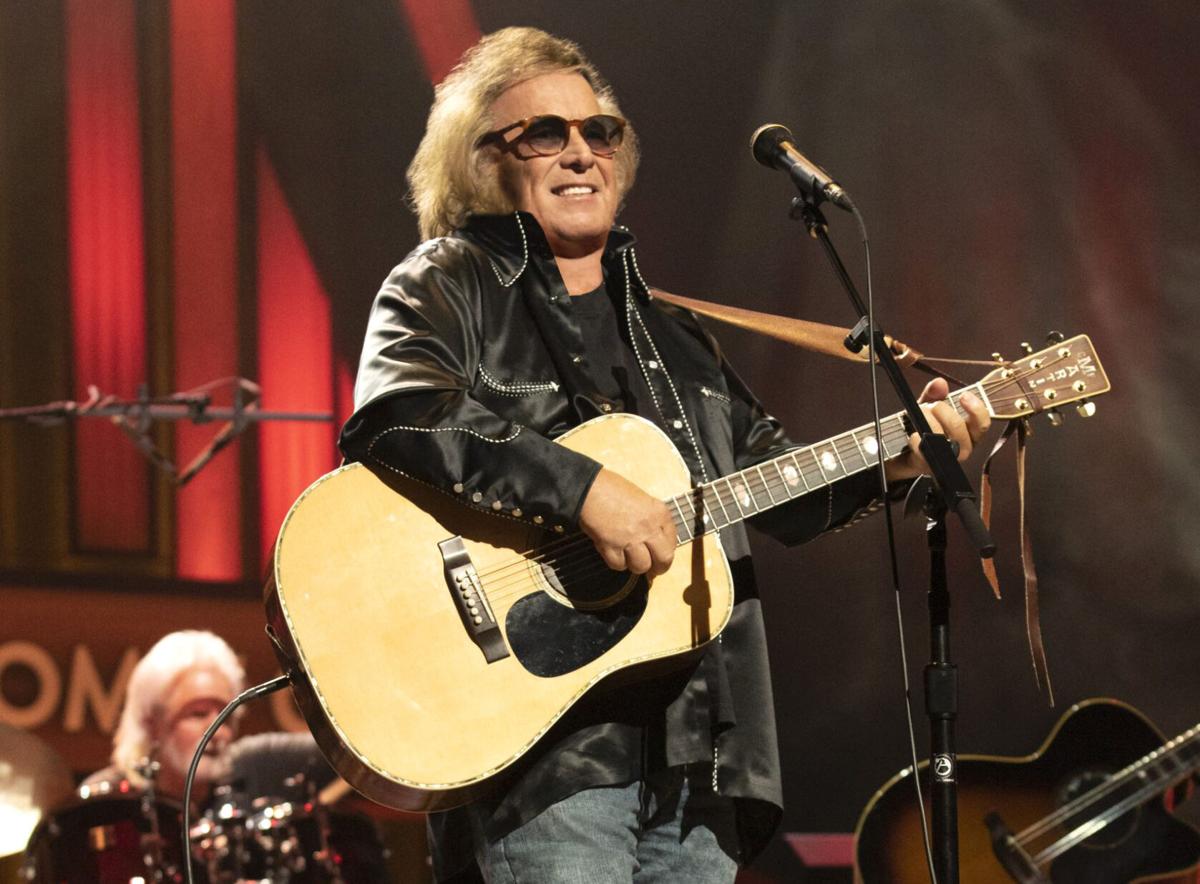People had questions, lots of questions, about Don McLean’s song “American Pie.”
Ever since it was released in late 1971, fans and critics alike have pored over the lyrics and debated about the identity of the jester and whose thorny crown he stole. They’ve researched Buddy Holly and Richie Valens and the day the music died in an Iowa field that snowy winter’s night.
Fifty years after “American Pie” topped the Billboard Hot 100 charts in early 1972, the debate and the questions continue.
“They’ve given up on going over the lyrics with me because they know I don’t do that,” McLean said during a phone call late last month to talk about his “American Pie” 50th Anniversary World Tour that pulls into Fox Tucson Theatre on Thursday, Feb. 24. “But now I’m telling them why. Look I’ve mentioned James Dean in the song by name. If I had wanted to say the king was Elvis I would have named him Elvis. But the king in my song has a thorny crown and only Christ had a thorny crown.”
McLean has kept mum all these years as critics and fans alike have debated and analyzed his song, looking for clues in the lyrics that touched on one moment in time that changed a generation.
Many have long guessed that Bob Dylan was McLean’s jester, but he is quick to dispel that.
“If I had wanted to call him Dylan I would have called him Bob. I would have called him BD. I would have made some oblique reference, but I didn’t,” he said. “Because it’s not what I want. I tried to use words and music to capture an inexpressible idea, somewhat like the Beatles did in ‘A Day in the Life.’”
As he marks the song’s 50th anniversary, McLean is fielding every question imaginable about the song.
“There is a number of No. 1 questions. ‘Does it feel like 50 years?’ That’s one I’ve been getting a lot. Another one is, ‘Did you ever think that it would last this long?’ Or ‘Why do you think it’s lasted this long?’” he said.
The top question: “Did you ever imagine ‘American Pie’ would become the generational song it has become?”
“The answer is no. First of all, I had very low expectations for myself. All I was trying to do was to survive,” he said. “I can’t describe this to you because I am now in the world (of) and mentioned in the same breath as the biggest music stars on the planet currently. … When I started I just wanted to make a record for Folkways or Vanguard. Some little folk label that would put it out and … it would end up in school libraries.”
But thanks to Alan Livingston, whose little known indie label Mediarts Records would become Capitol Records, McLean went from obscurity to international star.
Under Livingston, McLean made his debut album “Tapestry” in 1969, and when they released it, the label, which had an improbably effective distribution system, got McLean played on underground radio. He quickly found an audience among the intellectuals, artists and college students who paid attention to underground.
“Suddenly, I was headlining night clubs and concert halls. I had been struggling … and now I was signed with William Morris and I was opening for everybody,” McLean said, adding that for the first couple songs of those 30-minute opening sets, the audiences would scream profanities for him to get off the stage “and I would come up with some powerful song, and they would love it. I would turn that crowd around.”
With the release of his second album, “American Pie” in 1971, which included the single “Vincent,” McLean’s musical fortunes soared.
“All of a sudden I start becoming an international concert star and record star,” said the 76-year-old McLean. “In Australia, every album I made in the 1970s and 1980s was gold or platinum. I had lots of gold and platinum albums all over Europe … and a few in the United States.”
He has released 22 studio albums including 2020’s “Still Playing Favorites,” a dozen compilation albums and four live albums. According to the Recording Industry Association of America, which tracks record sales, he has sold more than 50 million albums worldwide.
“And people concentrate on the one song,” he said. “And why? People love the lyrics. They are in love with this song. They love ‘American Pie,’ and they want to know about it. And how can I possibly be rude to anybody who loves the song that much.”
“And I love the song. It’s been a helluva trip with this thing. And it keeps coming.”
McLean said he never gets tired of singing “American Pie” and seeing the audience react.
“It never gets old,” he said. “The happiness of the people and the joy my songs, whether it’s ‘Crossroads’ or ‘And I Love You So’ or my version of ‘Crying’ or ‘Since I Don’t Have You’ or ‘Everyday,’ my songs give people an enormous amount of happiness.”





